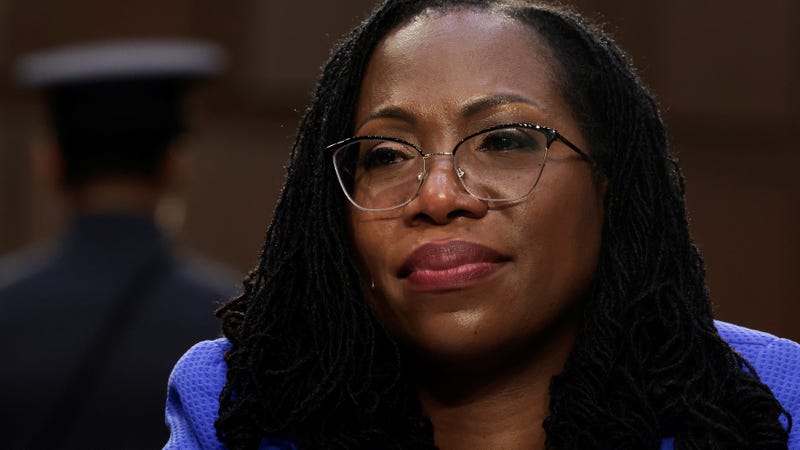
PHILADELPHIA (KYW Newsradio) — The U.S. Senate confirmation hearings for President Joe Biden’s Supreme Court nominee, Judge Ketanji Brown Jackson, have concluded. It was quite ugly at times, and it seemed like nobody changed their mind about Judge Jackson or their vote.
Dr. Susan Liebell, professor of political science at Saint Joseph's University, said the Senate process of picking Supreme Court judges wasn’t always like this.
Listen to the full episode of KYW Newsradio In Depth below.

“No, not really, for a really long time. The senators just got into the room and they had a voice vote. And they all just said ‘aye’ and there was no hearing, they didn't discuss. They didn't bring in witnesses, and certainly, the nominated justice didn't come into the room. So it really was advise and consent,” said Liebell.
“But in 1916, Woodrow Wilson nominated Louis Brandeis to the Supreme Court who would be the first Jewish justice. He'd been a corporate lawyer, he was very, very wealthy. And he had turned into what many people call the first public interest lawyer suing corporations. He was objected to by former President Taft, by the former Attorney General, the Secretary of State, the president of the ABA. There's a lot of antisemitism. So they held a hearing. He didn't come, but others spoke on his behalf and against him, and he was eventually put forward.”
Anti-semitism and racism led to more contention about Supreme Court justice nominees during the mid-20th century. But in the era of 24-hour news outlets, the internet, and a highly politically charged society, the choosing of justices has presented opportunities for senators to craft sound bytes, and talk to voters and cameras to score political points.
It has also presented opportunities to manipulate the process for political gain.
“I think what we've revealed is that the judiciary is not some special institution that is separated from politics. It's just as political an institution,” said Dr. Liebell.
“When [Kentucky Senator] Mitch McConnell said that he would not allow President Obama to appoint somebody to the Supreme Court, he was going against a precedent that we have been following. He said that it had to be that the next the people would choose that, that we needed to have an election. And then exactly the same thing happened right before an election when Justice Ginsburg died. And so you know, as Chuck Schumer said, this was very hypocritical, just a bait and switch.”
Listen to much more of Dr. Liebell’s take on the politicization of the Supreme Court nomination process in the episode of KYW Newsradio In Depth below.



